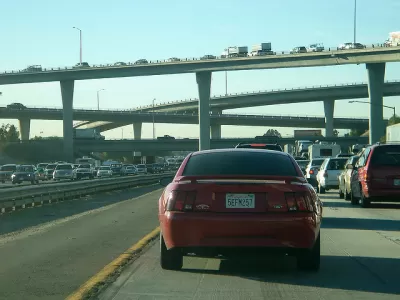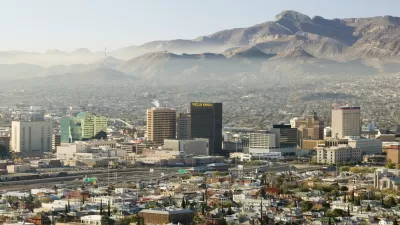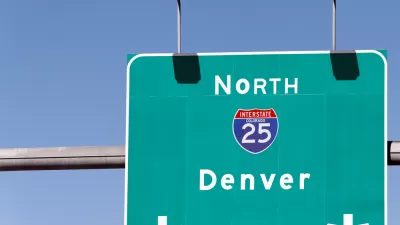Highway expansion has been shown, time and again, to increase traffic and congestion. Cities are finally getting the message.

For decades, conventional wisdom in transportation planning circles held that "when a highway is choked with traffic, the solution is to expand it or build another road nearby." Yet research from projects around the country, writes Alan Ehrenhalt in Governing, has disproven this theory. When Los Angeles widened its notorious I-405 freeway in 2014, "[t]ravel times actually increased once the project was finished, although rush hours shortened slightly." Meanwhile "the Katy Freeway in central Houston, expanded in 2011 to more than 20 lanes in some segments, making it one of the widest highways in the world," saw travel times out of downtown increase "by some estimates as much as 30 percent" after the project's completion.
The increase in traffic is due to a phenomenon known as "induced demand," a concept that dates back to the 1960s, when economist Anthony Downs argued that "peak-hour congestion rises to meet maximum capacity." As it turns out, "highways are vulnerable to latent demand — people who haven’t been using them start to fill them up once the capacity is expanded." But "traffic planners, especially those in state highway departments, refused to believe it," writes Ehrenhalt. "They went with what they considered common sense and kept expanding and widening."
Expanded highway capacity also leads to "more development: new trucking depots and large numbers of employees who commute to work; new housing developments and shopping centers at the exits," all of which add to the congestion.
"Most big cities seem to have caught on and are no longer seeking to expand the highways within their borders. But quite a few state transportation agencies have failed to get the message, or are simply ignoring it," with major projects continuing to move forward. "Urban transportation needs many things," says Ehrenhalt, "but it doesn’t need more asphalt."
FULL STORY: Asphalt, Gridlock and Common Sense

Alabama: Trump Terminates Settlements for Black Communities Harmed By Raw Sewage
Trump deemed the landmark civil rights agreement “illegal DEI and environmental justice policy.”

Study: Maui’s Plan to Convert Vacation Rentals to Long-Term Housing Could Cause Nearly $1 Billion Economic Loss
The plan would reduce visitor accommodation by 25% resulting in 1,900 jobs lost.

Planetizen Federal Action Tracker
A weekly monitor of how Trump’s orders and actions are impacting planners and planning in America.

Wind Energy on the Rise Despite Federal Policy Reversal
The Trump administration is revoking federal support for renewable energy, but demand for new projects continues unabated.

Passengers Flock to Caltrain After Electrification
The new electric trains are running faster and more reliably, leading to strong ridership growth on the Bay Area rail system.

Texas Churches Rally Behind ‘Yes in God’s Back Yard’ Legislation
Religious leaders want the state to reduce zoning regulations to streamline leasing church-owned land to housing developers.
Urban Design for Planners 1: Software Tools
This six-course series explores essential urban design concepts using open source software and equips planners with the tools they need to participate fully in the urban design process.
Planning for Universal Design
Learn the tools for implementing Universal Design in planning regulations.
Caltrans
Smith Gee Studio
Institute for Housing and Urban Development Studies (IHS)
City of Grandview
Harvard GSD Executive Education
Toledo-Lucas County Plan Commissions
Salt Lake City
NYU Wagner Graduate School of Public Service





























